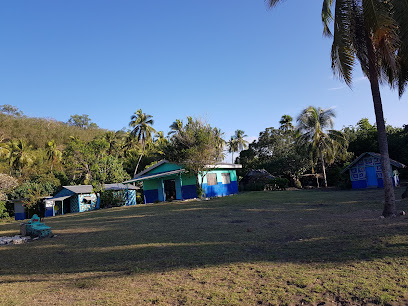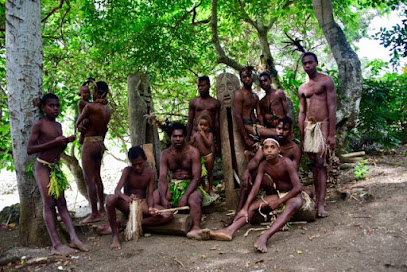
Malekula Island: The Heart of Vanuatu's Culture and Natural Beauty
Malekula Island, the second largest island in Vanuatu, offers a unique blend of cultural richness and natural splendor. Known for its diverse tribal customs, visitors can immerse themselves in the traditions of the Small Nambas and Big Nambas tribes. These tribes are famous for their traditional dances, ceremonies, and intricate body art. A visit to Malekula is like stepping back in time and experiencing a way of life that has remained largely unchanged for centuries. Nature enthusiasts will find Malekula a paradise waiting to be explored. The island boasts lush rainforests, scenic waterfalls, and pristine beaches. Trekking through the island’s dense jungles, visitors can discover exotic wildlife and breathtaking views. The coral reefs surrounding the island are perfect for snorkeling and diving, offering a glimpse into the vibrant underwater world. For those interested in history, Malekula Island is home to ancient archaeological sites and remnants from World War II. The island’s friendly locals are always eager to share their knowledge and stories, making every visit an educational journey. Whether you are an adventurer, a culture seeker, or someone looking to relax, Malekula Island has something to offer.
Local tips in Malekula Island
- Respect local customs and traditions, especially when visiting tribal areas.
- Hire a local guide for trekking to get the most out of your jungle and waterfall explorations.
- Bring cash, as credit card facilities are limited on the island.
- Visit the local markets to experience traditional foods and crafts.
- Ensure you have mosquito repellent, especially when venturing into forested areas.
Malekula Island: The Heart of Vanuatu's Culture and Natural Beauty
Malekula Island, the second largest island in Vanuatu, offers a unique blend of cultural richness and natural splendor. Known for its diverse tribal customs, visitors can immerse themselves in the traditions of the Small Nambas and Big Nambas tribes. These tribes are famous for their traditional dances, ceremonies, and intricate body art. A visit to Malekula is like stepping back in time and experiencing a way of life that has remained largely unchanged for centuries. Nature enthusiasts will find Malekula a paradise waiting to be explored. The island boasts lush rainforests, scenic waterfalls, and pristine beaches. Trekking through the island’s dense jungles, visitors can discover exotic wildlife and breathtaking views. The coral reefs surrounding the island are perfect for snorkeling and diving, offering a glimpse into the vibrant underwater world. For those interested in history, Malekula Island is home to ancient archaeological sites and remnants from World War II. The island’s friendly locals are always eager to share their knowledge and stories, making every visit an educational journey. Whether you are an adventurer, a culture seeker, or someone looking to relax, Malekula Island has something to offer.
When is the best time to go to Malekula Island?
Iconic landmarks you can’t miss
Unmissable attractions to see
Evergreen Cascades Waterfall
Uncover the serene beauty of Evergreen Cascades Waterfall, a breathtaking natural wonder in Vanuatu perfect for adventure and relaxation.
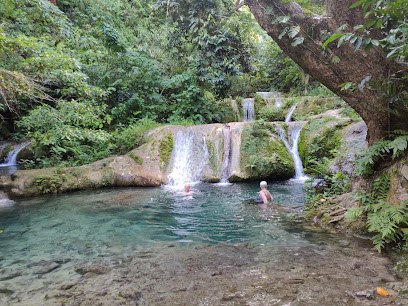
Aore Adventure Sports & Lodge
Experience unparalleled diving and breathtaking beauty at Aore Adventure Sports & Lodge, your ultimate escape in Vanuatu.
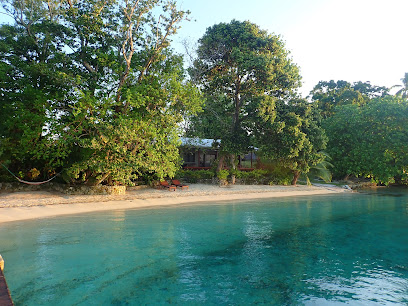
Santo Horse Adventures
Explore the lush landscapes of Espiritu Santo on horseback at Santo Horse Adventures, where every ride reveals the island's natural beauty.
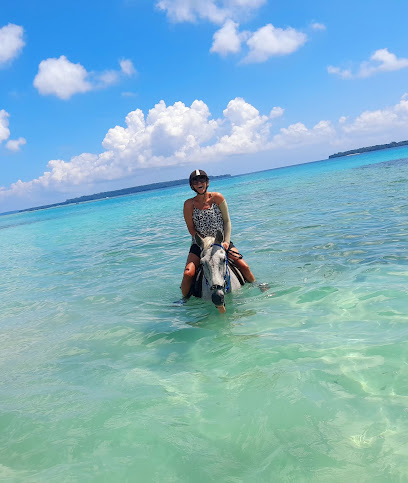
Markets, malls and hidden boutiques
Pandanus Vanuatu Ltd
Explore Pandanus Vanuatu Ltd for unique handbags, jewelry, and souvenirs that embody the spirit of Vanuatu, perfect for every traveler.
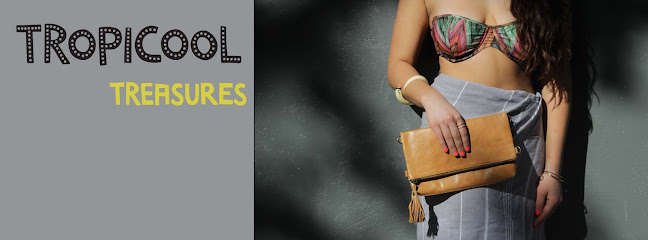
Lakatoro Trading Centre
Discover the essence of Vanuatu at Lakatoro Trading Centre, a vibrant marketplace filled with local crafts, fresh produce, and cultural experiences.
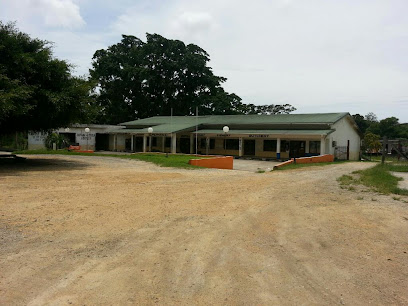
Lakatoro Consumer Cooperative
Explore the Lakatoro Consumer Cooperative for a genuine taste of Vanuatu’s local culture and vibrant shopping experience.
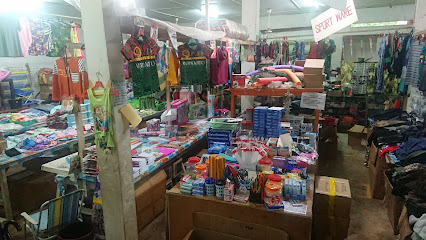
Tautu Shopping Center
Explore Tautu Shopping Center in Norsup for local snacks, essentials, and a taste of Vanuatu's vibrant culture.
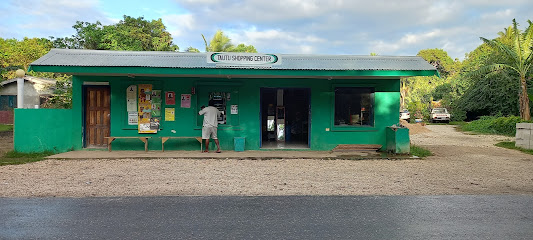
Malampa Butcher and Fish Market
Discover the heart of Lakatoro's culinary scene at Malampa Butcher and Fish Market with fresh meats and seafood.

Ringi Te Suh Marine Conservation
Experience the vibrant floating market at Ringi Te Suh Marine Conservation, where local culture meets marine preservation in the heart of Vanuatu.
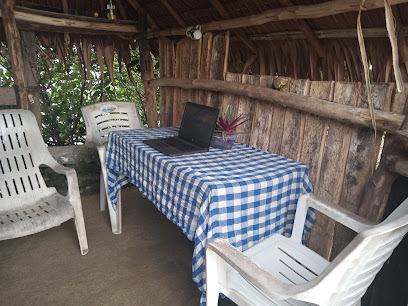
Malampa Handicraft Centre
Explore the vibrant artistry at Malampa Handicraft Centre in Lakatoro, showcasing unique handcrafted treasures and local cultural heritage.

Maskelyne's Navura Lodge
Experience the tranquil charm of Maskelyne's Navura Lodge in Peskarüs, a perfect retreat for nature lovers and relaxation seekers in Vanuatu.
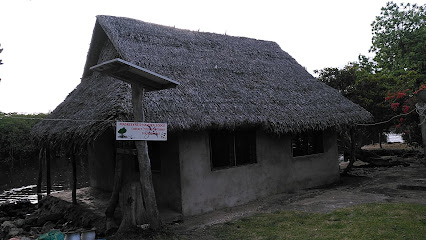
VETAN
Discover the cultural treasures of Vanuatu at VETAN in Lakatoro, a charming home goods store showcasing local craftsmanship and unique souvenirs.

Malekula Distributors Centre
Explore the vibrant Malekula Distributors Centre in Lakatoro for an authentic taste of Vanuatu's local products and culinary treasures.

JRV Recycle Store
Explore the JRV Recycle Store in Lakatoro for unique second-hand clothing and sustainable shopping experiences that celebrate individuality and eco-friendliness.

Lowoimis
Experience the enchanting world of floral design at Lowoimis in Port Vila, where nature’s beauty meets artistic expression.

Digicel Kiosk
Discover the convenience of staying connected at Digicel Kiosk in Lakatoro, where local insights meet essential mobile services for travelers.

Communication Solutions Lakatoro Branch
Explore the Communication Solutions Lakatoro Branch for all your electronic needs in the heart of Malekula, Vanuatu.
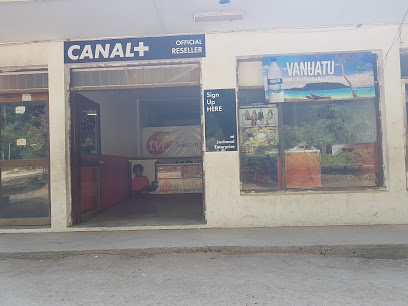
Jump Street Second Hand
Explore sustainable fashion and discover unique second-hand treasures at Jump Street Second Hand in Tagabe, Vanuatu.

Essential bars & hidden hideouts
The Beach Bar
Experience the vibrant atmosphere and family-friendly delights of The Beach Bar in Vanuatu, where adventure meets relaxation.
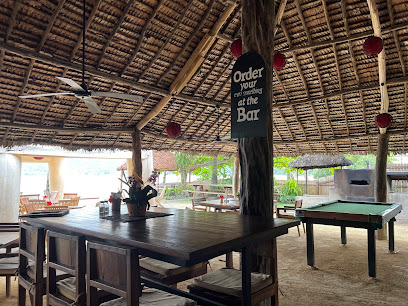
War Horse Saloon
Discover the vibrant nightlife at War Horse Saloon in Port Vila, Vanuatu - where friendly locals and great drinks create unforgettable memories.
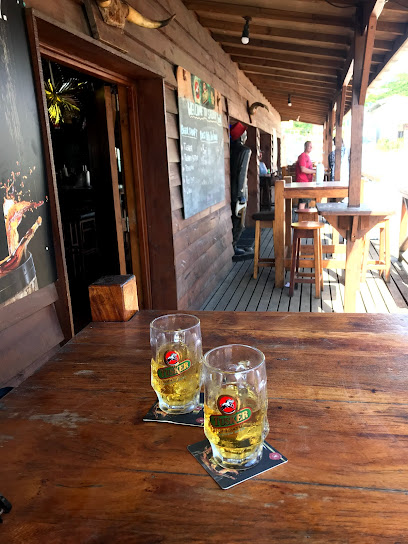
Banyan Beach Bar
Experience the vibrant atmosphere, stunning views, and delicious cocktails at Banyan Beach Bar in Port Vila, Vanuatu.
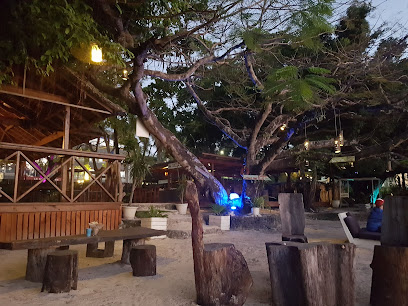
Stone Lounge
Experience the vibrant nightlife of Port Vila at Stone Lounge, where handcrafted cocktails meet a tropical ambiance.
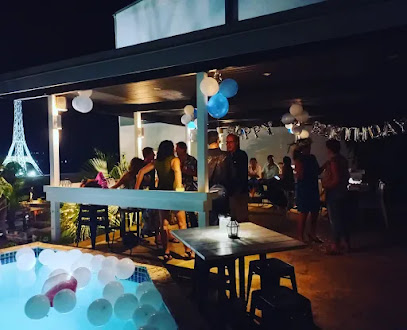
Kava Lounge
Experience the vibrant nightlife of Port Vila at Kava Lounge, where tradition meets tropical flavors in a lively atmosphere.
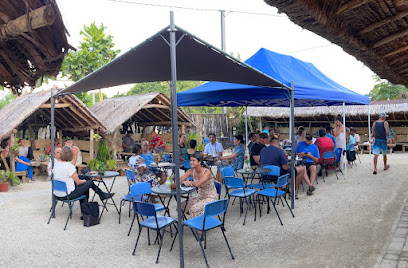
Local Kava Bar
Discover the heart of Vanuatu's culture at the Local Kava Bar in Port Vila—your gateway to authentic kava experiences and island hospitality.
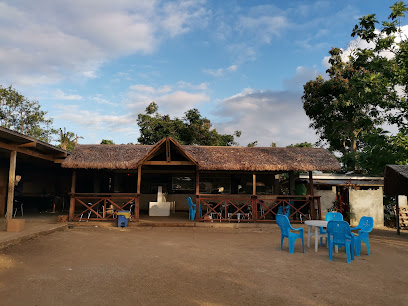
Sunset Bar & Grill
Experience breathtaking views and delightful flavors at Sunset Bar & Grill on Iririki Island, your perfect tropical getaway in Port Vila.
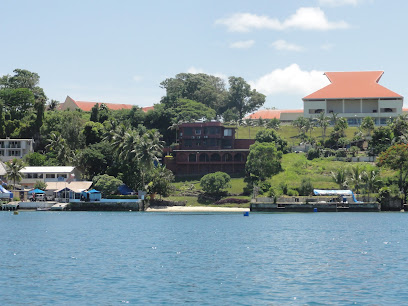
Timber Nakamal (was Bamboo Nakamal)
Discover Timber Nakamal in Port Vila for a refreshing escape with tropical drinks and stunning ocean views, perfect for unwinding in Vanuatu.
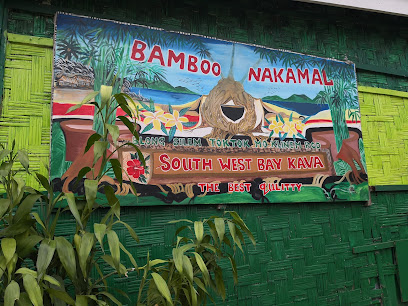
El Manaro Kava Bar
Experience the authentic taste of Vanuatu at El Manaro Kava Bar, where tradition meets relaxation in the heart of Port Vila.
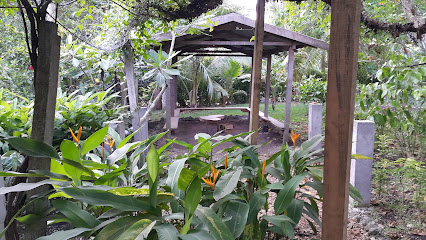
Mango Kava Bar
Experience the calming essence of kava at Mango Kava Bar in Luganville, Vanuatu, where local culture meets relaxation in a tropical setting.
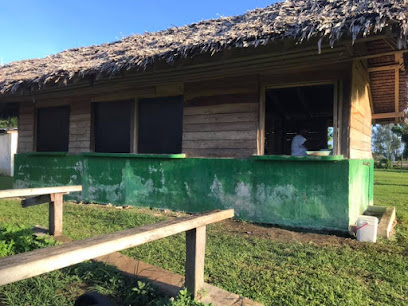
Nethung Restaurant
Experience authentic Vanuatu cuisine at Nethung Restaurant on Malekula Island, where local flavors and warm hospitality await.
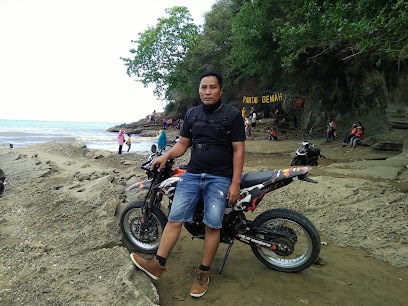
Chez Marius Kava Bar
Discover the heart of Vanuatu at Chez Marius Kava Bar, where vibrant culture meets the traditional taste of Kava in Port Vila.
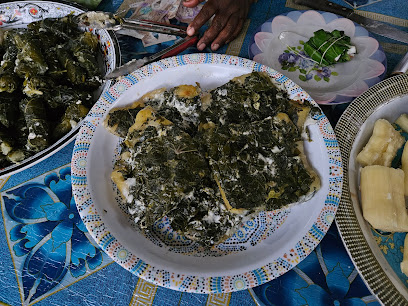
Jimas Restaurant
Discover a taste of Vanuatu at Jimas Restaurant in Lakatoro, where fresh local ingredients and traditional flavors create an unforgettable dining experience.
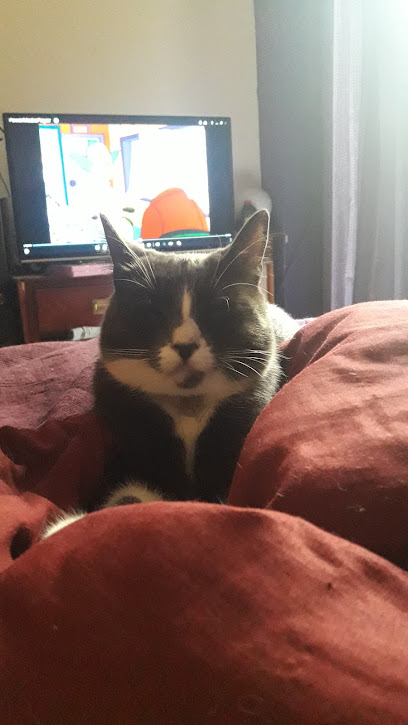
Lakatoro Palm Lodge
Experience the serene beauty and authentic charm of Lakatoro Palm Lodge, your perfect getaway in the heart of Malekula, Vanuatu.
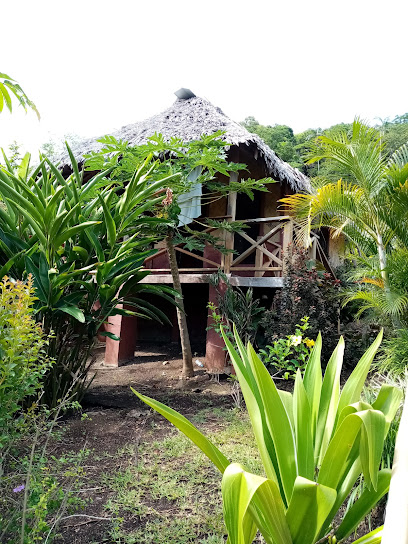
BACK YIRD KAVA BAR
Experience the authentic taste of Vanuatu at BACK YIRD KAVA BAR, where tradition meets a welcoming atmosphere in the heart of Malekula.

Local Phrases about Malekula Island
-
- HelloAlo
[ah-loh] - GoodbyeBaio
[by-oh] - YesIoo
[ee-oh] - NoTas
[tahs] - Please/You're welcomePlis
[plees] - Thank youTankiu
[tan-kyoo] - Excuse me/SorrySori
[soh-ree] - How are you?Yu stap gut?
[yoo stap goot] - Fine. And you?Gut. Yu?
[goot. yoo] - Do you speak English?Yu save toktok long Inglish?
[yoo sah-veh tohk-tohk long een-gleesh] - I don't understandMi no save
[mee noh sah-veh]
- HelloAlo
-
- I'd like to see the menu, pleaseMi wantem lukim menu, plis
[mee wan-tem loo-keem men-oo, plees] - I don't eat meatMi no kakae mit
[mee noh kah-kah-eh meet] - Cheers!Yumi drink
[yoo-mee drink] - I would like to pay, pleaseMi wantem pei, plis
[mee wan-tem pay, plees]
- I'd like to see the menu, pleaseMi wantem lukim menu, plis
-
- Help!Helpem mi!
[hel-pem mee] - Go away!Go we!
[goh weh] - Call the Police!Kolem Polis!
[koh-lehm poh-lees] - Call a doctor!Kolem dokta!
[koh-lehm dohk-tah] - I'm lostMi las
[mee lahs] - I'm illMi sik
[mee seek]
- Help!Helpem mi!
-
- I'd like to buy...Mi wantem blong bae...
[mee wan-tem blong buy] - I'm just lookingMi jes luk
[mee jehs look] - How much is it?I hemi stap long hem?
[ee heh-mee stap long hehm] - That's too expensiveHemi moa bigget
[heh-mee moh-ah big-get] - Can you lower the price?Yu save karem pries go daon?
[yoo sah-veh kah-rehm preez goh down]
- I'd like to buy...Mi wantem blong bae...
-
- What time is it?Taem ia hemi?
[tah-em yah heh-mee] - It's one o'clockHemi wan taem
[heh-mee wahn tah-em] - Half past (10)Hemi stret (10)
[heh-mee streht (10)] - MorningMoning
[moh-neeng] - AfternoonAftanun
[ahf-tah-noon] - EveningIvinin
[ee-vee-neen] - YesterdayIstadet
[ee-stah-deht] - TodayTudei
[too-day] - TomorrowTumoro
[too-moh-roh] - 1Wan
[wahn] - 2Tu
[too] - 3Tri
[tree] - 4Fo
[foh] - 5Faiv
[fah-eev] - 6Siks
[siks] - 7Seven
[seh-vehn] - 8Eit
[ayt] - 9Nain
[nayn] - 10Ten
[tehn]
- What time is it?Taem ia hemi?
-
- Where's a/the...?Wea i stap wan...?
[weh-ah ee stap wahn] - What's the address?Wea i stap adres?
[weh-ah ee stap ah-drehs] - Can you show me (on the map)?Yu save soem mi (long map)?
[yoo sah-veh soh-em mee long map] - When's the next (bus)?Wea taem ia hemi blong nex (bisi)?
[weh-ah tah-em yah heh-mee blong neks bee-see] - A ticket (to ....)Wan tiket (lalong ....)
[wahn tee-keht lah-lohng]
- Where's a/the...?Wea i stap wan...?
History of Malekula Island
-
Malekula Island, like much of Vanuatu, has a complex history that includes periods of cannibalism. The island's native tribes, particularly the Big Nambas and Small Nambas tribes, practiced ritualistic cannibalism as a part of their culture. It was believed to be a way to gain the strength of their enemies. This practice continued until the early 20th century, when missionaries and colonial authorities began to suppress it.
-
The first recorded European to visit Malekula was Pedro Fernandes de Queirós, a Portuguese navigator in the service of Spain, in 1606. However, it was not until the 18th century that European explorers began to visit the island more frequently. Captain James Cook, the British explorer, made contact with the islanders in 1774, naming the island 'Mallicollo' and documenting his observations of their culture and practices.
-
In the 19th century, Christian missionaries arrived on Malekula Island, aiming to convert the indigenous population to Christianity. The arrival of missionaries such as John Geddie and John Paton led to significant cultural changes. They built schools and churches, and their influence played a crucial role in ending cannibalistic practices. However, the introduction of new religions also led to conflicts and resistance among the native tribes.
-
In the late 19th century, Malekula became part of the Anglo-French Condominium of the New Hebrides, a unique colonial arrangement where both British and French authorities jointly governed the islands. This period saw the establishment of plantations and the introduction of new economic systems. The dual colonial rule often led to administrative challenges and conflicts between the European powers and the indigenous population.
-
During World War II, Malekula Island, along with the rest of Vanuatu, played a strategic role for the Allied forces. The island served as a base for American troops. This period brought significant changes, including the construction of infrastructure and the introduction of modern goods and ideas. The presence of the Allied forces had a lasting impact on the island's social and economic landscape.
-
Vanuatu gained its independence from the Anglo-French Condominium on July 30, 1980. This marked the beginning of a new era for Malekula Island. The islanders have since worked to preserve their unique cultural heritage while navigating the challenges of modernization and globalization. Traditional practices, languages, and rituals continue to be an integral part of Malekula's identity.
-
Today, Malekula Island is known for its vibrant cultural festivals, which celebrate the rich heritage of the island's tribes. Events such as the Nalawan Festival showcase traditional dances, music, and customs. Efforts to preserve and promote the island's cultural history are ongoing, with local communities and organizations working to ensure that the unique legacy of Malekula is passed down to future generations.
Malekula Island Essentials
-
Malekula Island can be reached by air and sea. The nearest international airport is Bauerfield International Airport in Port Vila, the capital of Vanuatu. From Port Vila, you can take a domestic flight operated by Air Vanuatu to Norsup Airport or Lamap Airport on Malekula Island. The flight duration is approximately 45 minutes. Alternatively, you can take a ferry from Port Vila to Malekula, which takes around 12 hours.
-
Once on Malekula Island, transportation options include taxis, buses, and rental vehicles. Taxis are available but can be expensive. Buses are a more budget-friendly option and are commonly used by locals. Renting a vehicle is advisable for those looking to explore the island at their own pace, but keep in mind that roads can be rough and poorly signposted.
-
The official currency in Vanuatu is the Vanuatu Vatu (VUV). While some hotels and tourist establishments on Malekula accept credit cards, it is advisable to carry cash for most transactions, especially in rural areas. ATMs are limited, so it is wise to withdraw sufficient cash before arriving on the island.
-
Malekula Island is generally safe for tourists, but standard precautions should be taken. Avoid walking alone at night, especially in unfamiliar areas. Petty theft can occur, so keep your valuables secure. There are no specific high-crime areas targeting tourists, but it is always best to stay vigilant.
-
In case of an emergency, dial 112 for immediate assistance. Malekula has limited medical facilities, so for serious medical issues, evacuation to Port Vila may be necessary. It is highly recommended to have comprehensive travel insurance that covers medical emergencies and evacuation.
-
Fashion: Do dress modestly, especially when visiting villages. Avoid wearing revealing clothing. Religion: Do respect local customs and traditions. Always ask for permission before entering religious sites. Public Transport: Do be polite and respect local norms. Don't eat or drink on public transport. Greetings: Do greet people with a smile or a handshake. A slight bow is also acceptable. Eating & Drinking: Do try local foods and accept food offerings graciously. Don't refuse hospitality, as it is considered rude.
-
To experience Malekula Island like a local, visit the local markets where you can buy fresh produce and traditional crafts. Engage with locals, who are often friendly and eager to share their culture. Don't miss visiting the traditional 'Nakamals' (meeting places) and witnessing local dances and customs. For a unique experience, take a guided tour to explore the island’s rich history and diverse cultural heritage.
Nearby Cities to Malekula Island
-
Things To Do in Norsup
-
Things To Do in Lamap
-
Things To Do in Luganville
-
Things To Do in Port Vila
-
Things To Do in Sola
-
Things To Do in Lenakel
-
Things To Do in Isangel
-
Things To Do in Hienghène
-
Things To Do in Tadine
-
Things To Do in Bourail
-
Things To Do in La Foa
-
Things To Do in Lata
-
Things To Do in Nouméa
-
Things To Do in Lautoka
-
Things To Do in Nadi



